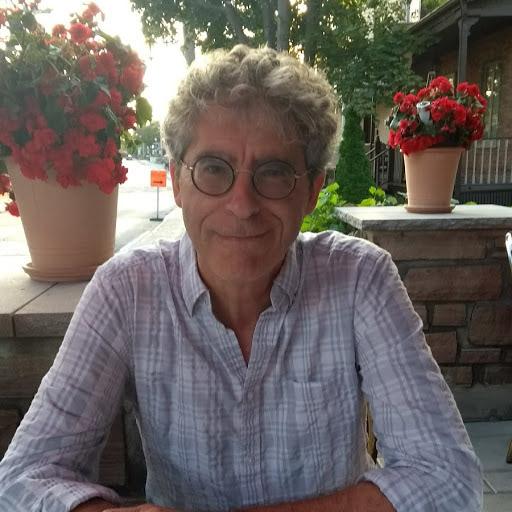
Marc Lalonde, PhD
- Assistant Professor and Undergraduate Advisor, Religions and Cultures
Status: Senior Lectuer
Are you the profile owner?
Sign in to editResearch areas: Philosophy of Religion, Critical Theory, Jewish and Christian Thought, the philosophy and ethics of Charles Taylor
Contact information
Email:
Biography
Educaton
PhD (Concordia University)Research interests
Critical TheoryModern and Postmodern Religious Thought (Jewish and Christian)
Religious Ethics
Traditions
Judaism, Christianity, SecularismField areas
Critical Theory, Ethics, and PhilosophyResearch
Marc P. Lalonde is a philosopher of religion whose research explores the relationship between religion and critical theory within the contemporary world. This has resulted in a book on the theological appropriation of Jurgen Habermas, as well as a more original effort to establish a "critical theory of religious insight." Along side these endeavours, Lalonde also focuses on modern Jewish and Christian thought in relation to the Holocaust. Of particular interest here has been the wartime diary of the Dutch-Jewish woman, Etty Hillesum. In a series of essays, Lalonde explores Hillesum's diary in relation to modern Jewish thought, the ethics of authenticity espoused by Charles Taylor, and contemporary, literary notion of "midrash." Many of these themes and issues have been fruitfully examined within his undergraduate and graduate classes.
Teaching activities
Some Courses Taught
Undergraduate
The Religious Imagination
Self and Other
Religion and Violence
Justice and Social Conflict in a Globalized World
Introduction to Mysticism
Methodology and the Study of Religion
Graduate
Theories of Religion
Exploring Ethics Today: Emmanuel Levinas and Charles Taylor
Michel Foucault and the Development of Religious Tthought
Religion and the Secular Sphere
The Holocaust, Modernity and Critique
Selected publications
Publications
"MoralAuthenticity in a Turbulent Age: Charles Taylor and the Diary of EttyHillesum." Under review at Studiesin Religion/Sciences Religieuses.
“The ReligiousSignificance of the Holocaust Today: The Diary of Etty Hillesum." The Journal of Jewish Identities 9/1(2016): 59-74. Peer reviewed.
Forward to thePersian translation of Religion and theMaking of Society: Essays in Social Theology, by Charles Davis. Translatedby Hassan Mohaddesi and Hossein Babolhavaeji. 2009.
From Critical Theology to a Critical Theory ofReligious Insight: Essays in Contemporary Religious Thought. New York: PeterLang, 2007.
“A CriticalTheory of Religious Insight.”Studies inReligion/Sciences Religieuses 34/3-4 (2005): 357-374. Peer reviewed.
“Fragments ofReligion: A Reflection on the Future of Post-Christian Thought.” Philosophy, Culture, and Traditions 3(2005): 134-153. Peer reviewed.
Critical Theology and the Challenge of JürgenHabermas: Toward a Critical Theory of Religious Insight. New York: PeterLang, 1999.
“On theMoral-Existential Facet of Religious Studies Today.”Studies in Religion/Sciences Religieuses 21/1 (1997): 25-43. Peerreviewed.
Marc P. Lalondeed., The Promise of Critical Theology:Essays in Honour of Charles Davis. Waterloo, Ontario: Wilfrid Laurier U.P.,1995.
Marc P. Lalonde,Louise Mayer and Jack Lightstone, “Ritual Performance in a Reform SabbathService.” Chapt. 6 In Ritual and EthnicIdentity: A Comparative Study of the Social Meaning of Liturgical Ritual inCanadian Synagogues, edited by Jack N. Lightstone and Frederick Bird.Waterloo, Ontario: Wilfrid Laurier U.P., 1995.
“From Postmodernityto Postorthodoxy, Or Charles Davis and the Contemporary Context of ChristianTheology.” Studies in Religion/SciencesReligieuses 22/4 (1994): 437-449. Peer reviewed.
“Power/Knowledgeand Liberation: Foucault as a Parabolic Thinker.” Journal of the American Academy of Religion. 61/1 (1993): 501-520.Peer reviewed.
“Deciphering aMeal Again, Or the Anthropology of Taste.” SocialScience Information 31/1 (1992): 69-86. Peer reviewed.
Marc P. Lalondeand David Howes, “Of the Standard of Taste in Mid-Eighteenth Century Englandand the Circulation of Smells in Post-Revolutionary France.” Dialectical Anthropology 16/2 (1992):123-135. Peer reviewed.


